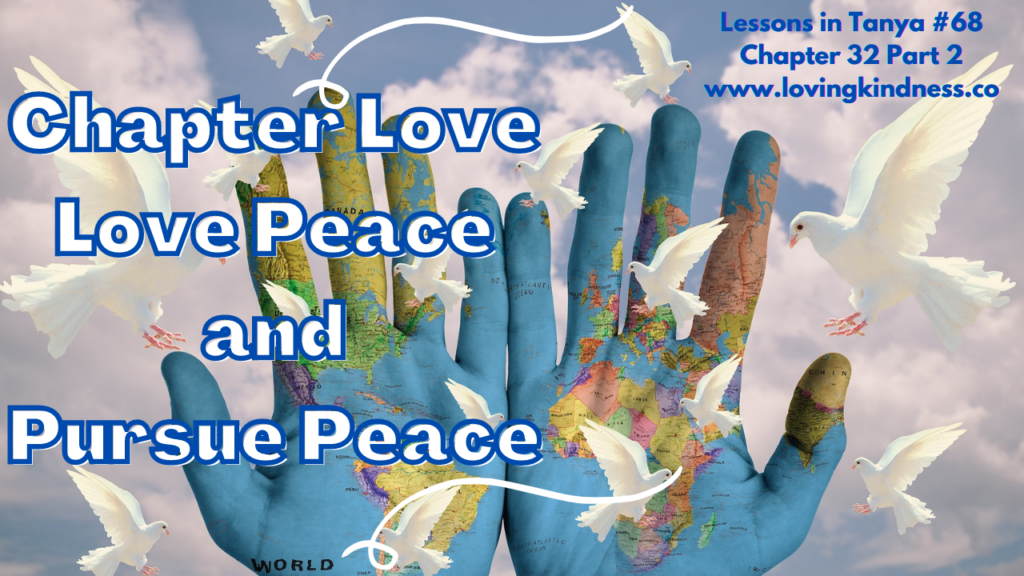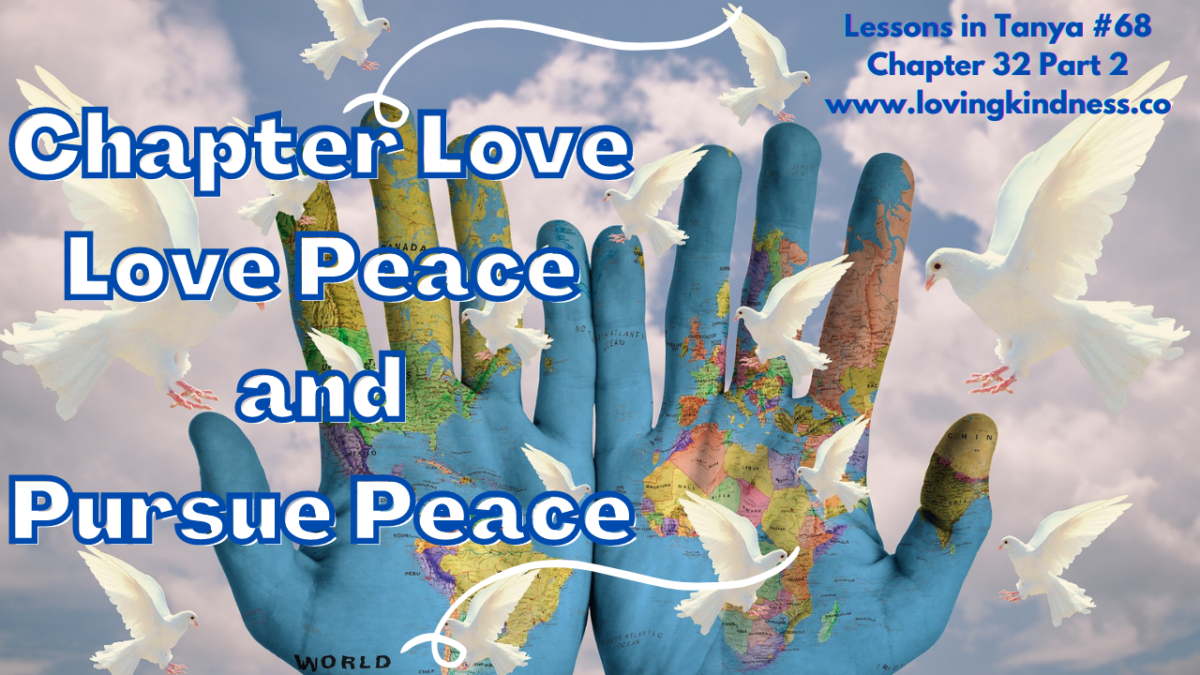
We conclude Chapter 32 – the chapter of Leiv (Love). The Alter Rebbe leads us through everything we need to know to internalise the beauty of the Mitzvah of loving another as we love ourselves – a central theme to all of the Torah. In fact, Hillel teaches us, the entire Torah is based upon this Mitzvah – with everything being a commentary on it.
It is not for nothing that we request from God each day – at least three times a day – as we pray the Amidah prayer, “Bless us… as one”. Without our uniting with each other, we have lost the importance of what the Torah is about. We pray for this every day. Now it is for us to put into practice. God can provide the blessing, but it is for us to enforce it through our actions, our speech and our thoughts.
The Torah teaches us that we are to hate one who sins. However, there are conditions attached to this. In the first instance, the Mitzvah of hating another only applies to the other who is one’s equal in Mitzvos and spiritual standing. In addition, one is required to rebuke the sinner before the hatred begins. Perhaps he/she did not know what they were doing or perhaps they had made an error.
But for one who is not on his same spiritual standing, it is a Mitzvah to love them (and not to hate them.) Teaching another of Hillel’s teachings, the Alter Rebbe tells us that our obligation is to love peace, pursue peace and bring others closer to Torah. Even if they are no better than just “creatures”, one must love them.
And one can think about it — even if the love does nothing, one will not have lost out on anything. This is because even if there is a Mitzvah to hate someone, there is also a Mitzvah to love them. Hate can be from the side of the negative they have – but love comes from the side of their Godliness within them. And so there is a Mitzvah to love them as much as there is a Mitzvah to hate them. With such a choice constantly, if one chooses to love – then even if one is not successful, one will still be doing good. One has not lost out.
It is a wonderful chapter to learn and to go over regularly. It contains within it the very roots of what the Torah is about – loving and caring for the other.


